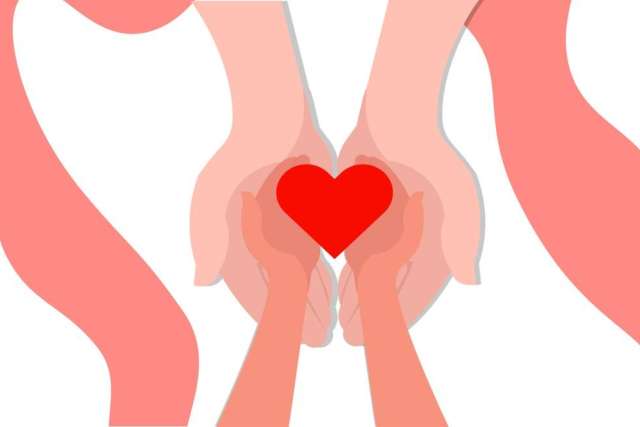Heart disease is the leading cause of death in the United States for both men and women, but historically, cardiovascular research has focused almost exclusively on men.
Heart attacks present differently in women than they do in men, but those are the indicators most widely discussed: the tightness in the chest, cold sweat, shortness of breath. Women may experience chest tightness or shortness of breath during a heart attack, but are just as likely to feel nausea or pain in their back or jaw.
This leaves women at risk of delaying seeking medical care and even affect the treatment they receive once they get to the hospital.
“Because their symptoms are atypical, they may not even be recognized as having a heart attack,” said cardiologist Marcella Calfon Press, MD, PhD, co-director of UCLA Women’s Cardiovascular Health Center. “So they may not even be placed under immediate or urgent review in the emergency room. Or maybe they’re less likely to be seen right away.
“Unfortunately, this has led to worse outcomes in women with heart disease compared to men.”
Breast cancer and heart disease
While the number of women who die from breast cancer annually (about 43,000 expected this year) doesn’t come close to the number of women killed by heart disease each year (more than 300,000), the two conditions share some overlapping risk factors, says cardiologist Karol Watson, MD, PhD, director of the UCLA Women’s Cardiovascular Health Center.
These include:
- Age
- Poor diet
- Excess alcohol intake
- Hormone replacement therapy
- Obesity and overweight
- Physical inactivity
- Tobacco use
Adopting a traditional Mediterranean diet — rich in fruits and vegetables, fish and low-fat dairy, with “a tiny bit of alcohol” — is associated with a 13% reduction in cardiovascular disease, 6% reduction in cancer and 9% reduction in total mortality, Dr. Watson says.
But she emphasizes that “a tiny bit” of alcohol is quite tiny: Less than five grams a day. That’s about two ounces of wine. More than that may increase breast cancer risk.
Heart disease and COVID-19
The COVID-19 pandemic has affected heart disease outcomes by causing people to delay care, says cardiologist Janki Shah, MD. She pointed to research showing that Emergency Department visits declined by more than 20% for heart attack and stroke in the weeks following COVID-19 being declared a national emergency.
This makes controlling modifiable risk factors even more important, she says, especially since half of all women who experience heart attack have no warning symptoms and 90% of women have at least one risk factor for cardiovascular disease.
"Loneliness triggers a vicious cycle of health issues, most of them connected to heart health, such as depression, poor diet and lack of sleep."
Anne Saltzman, UCLA cardiac psychologist
The pandemic has made things worse, she says. The fear, anxiety and economic pressures of COVID-19 have led to increased stress and depression, which are also risk factors for heart disease.
“Maladaptive patterns have also increased,” Dr. Shah says, “such as a lack of exercise, overeating and an increase in smoking and drinking. All of these can adversely impact a person’s cardiovascular risk.”
Dr. Shah emphasized the following risk factors, which are modifiable through lifestyle changes:
- Diabetes
- High cholesterol
- High blood pressure
Lowering risk of heart disease
Lifestyle choices affect our vulnerability to heart disease, experts say.
Staying connected to loved ones is literally good for the heart, says UCLA cardiac psychologist Anne Saltzman, PsyD.
“Loneliness triggers a vicious cycle of health issues, most of them connected to heart health, such as depression, poor diet and lack of sleep,” Dr. Saltzman says. “The foundation of our well-being is love and support from the people we care about.”
The philosophy of flow is important to overall health, including heart health, says Anjani Mattai, MD, a clinical professor of medicine at the David Geffen School of Medicine at UCLA.
“When things are flowing, we feel energetic. When things are not flowing, we feel stagnant,” Dr. Mattai says. “The COVID-19 pandemic has disrupted our flow.”
To restore flow, which she defines as “movement with direction,” Dr. Mattai suggests following the acronym SMILES:
- Smile
- Move
- Inspire
- Love liquids
- Eat wisely
- Sleep soundly
Smiling produces “happy hormones,” Dr. Mattai says, including serotonin and dopamine. “Move” refers to exercise, which moves blood through the muscles, lubricates joints and “actually cleans the debris in the brain that can lead to dementia.” Dr. Mattai recommends 30 minutes of walking five days a week.
“Inspire” is about breathing deeply, which oxygenates and relaxes the body and mind. Loving liquids leads to ample hydration, which increases flow throughout the body. Eating wisely means more plants and spices, less meat, sugar and processed foods. Sleep is when the body restores itself. During REM sleep, blood flow to the brain increases up to 80%, Dr. Mattai says.
“In this pandemic, when everything is disrupted,” she says, “let’s get our flow going with SMILES.”
This story is a recap of a webinar on heart disease and how to prevent it with experts from the UCLA Women’s Cardiovascular Health Center. Watch the webinar: “Let’s Talk Heart Health: Mind, Body, Soul.”







